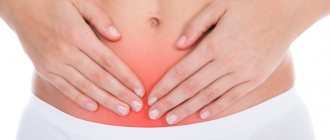If you find an error, please select a piece of text and press Ctrl+Enter.
Diarrhea appears as loose stools and can be mild to severe and last from days to weeks. It all depends on the root cause.
Other symptoms of diarrhea may include:
- constant bowel movements (at least three times a day);
- abdominal cramps;
- abdominal pain;
- poorly controlled bowel movements;
- nausea.
Important! You may also experience fever, dizziness, or vomiting. These symptoms usually occur when an infection causes diarrhea.
Let's look at the typical duration of diarrhea, along with home remedies and signs when you should see a doctor.
What to do if diarrhea does not go away for a long time
An unpleasant condition - stool disorder - can manifest itself over a long period of time and be the cause of many intestinal diseases in adults and children.
Diarrhea can last for several days, even a month. First of all, if you have prolonged diarrhea, you should consult a doctor. What to do if diarrhea prevents you from leaving the house? Before you drink a first aid kit of drugs for diarrhea, find out the reasons that caused the disease. In an adult, prolonged diarrhea can be the result of poisoning, diseases of the small and large intestines, stress, overwork and other reasons. In infants, the condition is sometimes due to physiological causes.
Persistent diarrhea (loose stools) in adults
The causes of prolonged loose stools can be a variety of factors. But most often, bowel dysfunction develops in the presence of one or more of the following circumstances.
Poor nutrition.
An unbalanced diet that contains excess fat can cause constant loose stools in adults.
Also, diarrhea is often provoked by the consumption of foods that contain substances to which a person has developed intolerance (lactose, gluten, food allergens).
Long-term loose stools often occur due to non-compliance with the diet - long breaks between meals followed by overeating can cause intestinal upset.
Food poisoning.
Toxic infections are another cause of chronic diarrhea in adults. In this case, the disease most often develops as an acute intestinal disorder. But if the causative product is not excluded from the diet (for example, some dish that has expired) and treatment is not carried out, then the acute condition turns into permanent loose stools.
Intestinal infections.
Pathogenic microorganisms that enter the digestive system with food (unwashed vegetables and fruits, spoiled foods) and water are the most common cause of prolonged diarrhea in adults who do not seek help in a timely manner.
In this case, pathogenic microbes disrupt the intestinal microflora, which is unable to recover under conditions of inflammation and an active infectious process. Intestinal dysbiosis maintains the course of the underlying disease and causes prolonged loose stools in adults.
Other diseases.
Some diseases of the internal organs can cause chronic loose stools.
Such ailments include disorders of the pancreas (pancreatitis), ulcerative colitis, tumor diseases of the intestine, etc.
With these diseases, constant diarrhea in adults may be accompanied by other symptoms, including the presence of traces of blood in the stool, exhaustion, etc.
Change of climatic conditions.
For many people, climate change can cause constant loose stools.
Changes in diet, moving across several time zones, unusual surroundings - these factors can provoke stress, which can cause disturbances in bowel function.
Beginning as an acute disorder, the condition is aggravated by the fact that beneficial intestinal microflora is washed out. And if diarrhea is not treated, dysbacteriosis becomes the cause of constant diarrhea in an adult.
Other factors.
The functioning of the gastrointestinal tract can be negatively affected by the following circumstances:
- taking medications for which stool upset is a side effect;
- a course of antibiotic therapy that changes the composition of the intestinal microflora;
- irritable bowel syndrome;
- stress.
Symptoms of diarrhea in adults
Main symptoms.
Depending on the causes of persistent diarrhea, the frequency of departures can vary from 5–7 per day to several times per hour. As a rule, the longer chronic diarrhea lasts in adults, the more painful the act of bowel movement is. Also, the more frequent and intense the urge, the more the density of stool and its volume decreases.
Accompanying symptoms.
Depending on the cause of prolonged diarrhea, other symptoms may also occur.
- Pain.
With prolonged diarrhea, pain can be localized in the area of the right or left hypochondrium, in the upper center of the abdomen, around the navel, and on the sides of the abdomen. The nature of the pain also varies - from aching and bursting to cutting, paroxysmal. - Bloating.
With chronic diarrhea, increased gas formation in the intestines is often observed, which causes flatulence and bloating. After each episode of passing gas, the patient’s condition becomes slightly easier. - Increased body temperature.
An inflammatory or infectious process in the intestines is often accompanied by an increase in body temperature. Depending on the causes of chronic diarrhea, it can rise to 37.5–39 °C. - Nausea, vomiting.
These symptoms often indicate food poisoning, but can also be one of the signs of inflammation of the appendix.
Treatment of persistent diarrhea in adults
Maintaining proper drinking regime.
Drinking enough fluid is the first and most important thing to do if you have persistent diarrhea. In this way, it becomes possible to compensate for the deficiency of fluid that the body loses with each bowel movement.
Oral rehydration.
With prolonged diarrhea, it may be necessary to drink special solutions that restore the concentration of electrolytes in the blood. This measure is mandatory for diarrhea of any duration, if there are signs of dehydration (decreased amount of saliva and urine output, dark urine, dry lips, etc.).
Diet correction.
With persistent diarrhea, it is very important to adjust the diet in favor of easily digestible and nutritious foods that will help form denser stool in the intestines and at the same time replenish nutritional deficiencies in the body.
This can be porridge, baked vegetables, boiled lean meat and fish. You should avoid foods that increase gas formation in the intestines and enhance peristalsis (legumes, raw vegetable salads, brown bread, milk, sweets).
Drug therapy.
A course of medications can be prescribed for diarrhea caused by various conditions, including infectious diseases and food poisoning, as well as for the treatment of other diseases if they cause chronic diarrhea.
If diarrhea lasts 48 hours or more, you should definitely consult a doctor. Also, consultation with a specialist is required for any duration of diarrhea, if it is accompanied by other negative symptoms. Only a specialist can correctly determine why the problem occurred.
Prevention of diarrhea
Maintaining personal hygiene rules
Infections that cause prolonged diarrhea in adults most often occur due to poor hygiene. Therefore, washing your hands and using only clean dishes and cutlery will significantly reduce the risk of intestinal problems.
Compliance with food hygiene rules
Thorough washing of fresh vegetables and fruits, monitoring the expiration date of consumed products, proper heat treatment of meat and fish, as well as compliance with food storage conditions are very important for the health of the gastrointestinal tract.
By following these rules, the likelihood of food poisoning is minimized. The same goes for water, especially when traveling. Try not to consume tap water, but prefer bottled water.
Follow your diet (have breakfast in the morning, do not overuse snacks during the day, do not allow long intervals between meals, etc.).
Timely treatment of diseases
Regularly scheduled examinations, as well as contacting a doctor if any signs of poor health appear, will help prevent the development of many diseases accompanied by stool disorders.
Physical activity
For the proper functioning of the gastrointestinal tract, physical activity plays an important role. Even walking regularly will help improve overall health and normalize bowel function.
Maintaining a healthy lifestyle
Giving up bad habits (smoking, alcohol abuse), proper work and rest hours, and a rational approach to nutrition are factors that together can have a truly healing effect on the digestive system and prevent chronic loose stools.
*Ameri et al. "Multicenter, double-blind study: comparison of the effectiveness of loperamide in acute diarrhea with two popular antidiarrheal agents and placebo", 1975.
Source: https://zen.yandex.ru/media/id/5b17c9735a104ffc19654747/postoiannyi-ponos-jidkii-stul-u-vzroslyh-5b23e03c93b46900a8788cc3
Diet and regimen
First of all, it is indicated to replenish the loss of fluid and electrolytes, and to maintain certain nutritional standards throughout the treatment.
- The patient needs to drink to prevent dehydration and remove accumulated toxins from the body. It is acceptable to drink clean water or use decoctions and teas. The volume of replenished fluid is at least 2 liters per day. You need to drink as much water as was lost.
- In case of severe distress with every minute urge, we give the patient a water-salt solution, for example, Regidron.
If nothing helps, diarrhea does not go away on the second or third day, despite following the doctor's instructions, you may not have changed your diet.
- We eat light purees, soups, meat, fish (boiled, low-fat).
- Porridges are cooked in water and have a slimy consistency.
- Products with high levels of pectin (apples, baked bananas).
- Strong tea and berry jelly.
- Potassium-rich foods.
All products are served in crushed, pureed form.
- Vegetables and fruits;
- Canned food;
- Smoked meats;
- Seasonings;
- Dairy products;
- Large grains so as not to traumatize the intestines;
- Fast food;
- Fatty food.
Drug therapy
In addition to diet, use medications: Smecta, Activated carbon. If loose stools have been going on for three days, medications may not help.
Loperamide-based products
These remedies are used when diarrhea is severe and does not stop for a long time. The drugs are available without a prescription. Prescribed for acute, chronic (if loose stools continue for the third week or more) diarrhea.
- 1st trimester of pregnancy, children under 6 years of age.
- Allergic reactions.
- 2-3 trimester - use in pregnant women if the benefit is higher than the risk.
- Acute colitis.
- Persistent diarrhea caused by long-term use of antibacterial drugs.
- Liver dysfunction.
The drugs are well absorbed by patients, but can be accompanied by side effects:
- Constipation, flatulence, the patient may have a stomach ache.
- Fatigue, drowsiness.
- Rash, itching, fever.
Imodium is available in the form of capsules or tablets. An adult or child over 12 years old should take 2 tablets once a day, i.e. at one time. If intestinal upset continues, take 1 tablet after going to the toilet until the diarrhea completely stops. Child over 6 years old – 1 tablet. means at a time, then 1 after emptying, until stool normalizes.
If intestinal upset continues 12 hours after taking the medicine, you must stop treatment and urgently go to the hospital.
Loperamide - adults initially take 2 capsules, then 1 capsule after going to the toilet, until stool normalizes (maximum dose - 8 capsules). Children over 6 years old – 1 capsule (maximum dose – 3 capsules).
If the stool has formed, we stop treatment.
Sorbents
Sorbents are mandatory. They take medications for poisoning, infectious diseases and as a quick help to stop diarrhea. They are able to collect toxic substances on the surface and remove them from the body.
Activated carbon - there are tablet forms and powder. More often used for poisoning and intoxication of various natures. Take up to 3 tablets 4 times a day, an hour before the main therapy, otherwise the effect of the main drug may be reduced. In acute conditions, it is permissible to stop taking the drug on the fifth day, usually every other day. If the condition is chronic, we extend the dose to fourteen days. Repeated course as prescribed by a specialist.
Side effects develop in the form of constipation, impaired absorption of substances in the intestines, decreased temperature and pressure, black stool, and impaired liver function.
Do not use the medicine in case of hypersensitivity to the composition of the drug, ulcerative defects in the digestive tract, bleeding from the gastrointestinal tract.
Smecta is a white or slightly yellowish powder, approved for use in children. It is used for acute and chronic digestive disorders of various types. It copes well when the baby has a stomach ache, bloating, or heartburn.
If the condition is acute, adults are allowed to consume 6 sachets per day. For babies up to one year old - two sachets per day for the first 3 days, then 1 sachet. Children over one year old, up to 4 sachets per day for 3 days, then 2 sachets. It is advisable to complete the course within a week. The product can be mixed with porridge, baby food, compote. Approved for use by pregnant women. In rare cases, when taking the drug, constipation and a slight rash with itching are observed.
Smecta should not be used if there is a malabsorption of substances or an allergy to the drug.
Probiotics
Drugs are prescribed for intestinal dysbiosis caused by antibiotics, and conditions characterized by loss of beneficial microflora.
Linex - used orally after meals, both for the treatment and prevention of intestinal imbalance. For children under three years of age, the contents of the capsules are mixed with water. Children from birth to two years are prescribed 1 drop. three times a day. From two to twelve years – 1-2 drops. three times a day. Adults: two capsules 3 times a day. The course is selected individually. No side effects of the drug were recorded.
What to do if you have loose stools (diarrhea, diarrhea) for a month?
When an adult patient suffers from loose stools for a month and does not go away even after two, such ailment may indicate the presence of various pathologies.
Diarrhea itself is a protective reaction of the body, like a cough or runny nose, which cleanses the respiratory system of pathogenic microorganisms. If diarrhea lasts more than a month, this indicates the body is trying to get rid of microbes that are active in the intestines. There is harmless diarrhea, it occurs after suffering stress, excessive anxiety, and other factors that can increase intestinal activity. There are two forms of diarrhea: acute and chronic.
Each has its own reasons, its own methods of treatment.
It is difficult to say unequivocally why diarrhea does not go away for a month or two. And all because the causes of illness in an adult can be different.
Most often, provoking factors are rotavirus infections, chronic diseases of the intestinal tract, poor diet, allergies and intolerance to any foods.
In this case, an adult may have loose stools for a month or more, what to do in such a situation? A regular diet will not be able to eliminate the problem; treatment must be systematic and comprehensive.
Is diarrhea with coronavirus really one of the first symptoms?
Diarrhea with coronavirus is an optional but probable sign of infection. Chinese doctors, based on a 10-day observation of 200 patients with an established diagnosis, found that:
- half have diarrhea or very poor appetite;
- some patients, but a smaller number, complained of nausea, abdominal pain and vomiting;
- if diarrhea is among the symptoms of coronavirus, such patients require hospitalization later than people who immediately showed only respiratory symptoms;
- under the same circumstances, treatment lasts 2-3 days longer than in the presence of cough;
- in some cases, digestive disorders were not accompanied by cough or shortness of breath.
American doctors also have their own opinion about severe diarrhea due to coronavirus: the risk of this symptom occurring in a severe form is higher if you have chronic diseases of the stomach and intestines. Such patients, in addition to antiviral therapy, should be treated as usual for the underlying pathology.
The Americans also noted that if the coronavirus begins with diarrhea, then shortness of breath and chest pain may appear later. Or they are absent altogether, since the infection penetrates the gastrointestinal tract, bypassing the respiratory organs. This atypical course makes it difficult to make a diagnosis and requires additional research.
For example, they do a stool test, since the contents of the intestines also contain COVID 19.
This means that infection is possible through the oral-fecal route, that is, through an insufficiently well-treated toilet, mucous membranes of the genital organs and dirty hands.
Coronavirus in children can also cause diarrhea. As in adults, it is caused by intoxication of the body, provoked by a pathogen. Moreover, at a young age, digestive disorders are more likely.
After all, children and adolescents more often suffer from COVID 19 in a mild form, that is, without a bursting cough, high fever and pneumonia.
But in this case, defecation can occur up to 5-8 times a day, which threatens dehydration of the body.
Therefore, it is necessary to give your child plenty of fluids to drink. Patients with diarrhea must observe quarantine more strictly, as they are at risk of acquiring an intestinal infection.
How to identify viral diarrhea?
The most common causes of viral diarrhea are rotavirus and enterovirus infections. Their clinical picture is characterized by the first development of symptoms of a viral infection (general malaise, weakness, headache, sore throat, lacrimation and nasal discharge), followed by vomiting and loose stools.
With viral diarrhea, loose stools are watery, without admixture of blood or pus.
The temperature in these cases usually rises to 37-38 degrees, sometimes abdominal pain may occur, but not intense and passes after the appearance of loose stools.
The viruses that cause these diseases can be transmitted both by airborne droplets (by sneezing, coughing, with dust, if there are viruses in it) and by household contact (by contact with objects touched by a sick person).
What is diarrhea caused by coronavirus?
Diarrhea due to coronavirus has the following symptoms:
- stool up to 8 times a day;
- intestinal contents may be watery, with mucus and flakes;
- Bloody streaks are likely to appear in the stool, especially when diarrhea does not last for the first day.
In children, it also occurs in acute form, accompanied by weakness. This symptom is extremely dangerous if the baby is under one year old. In this case, you need to consult a doctor without waiting for the 8th bowel movement.
In other cases, you need to assess your general well-being.
Rapid heartbeat, breathing, apathy or unnatural agitation, weak pulse, sunken eyes, severe pallor are reasons to call a doctor.
Diarrhea due to coronavirus in an adult can be a harbinger of more severe manifestations, especially in the presence of a chronic disease of the digestive system. It is also dangerous for the condition of the heart and kidneys, since along with more than 3 bowel movements, potassium and magnesium leave the body.
Therefore, severe diarrhea due to coronavirus is a reason to consult a doctor even in the absence of cough, chest pain and high fever. It can lead to intestinal perforation, that is, damage to its walls and blood spilling into the abdominal cavity. This condition requires surgical treatment.
Diarrhea with blood during coronavirus may mean damage to the mucous membrane of an organ or an acute stage of a chronic disease: colitis, dysbacteriosis, Crohn's disease. The same thing happens if COVID 19 is accompanied by an intestinal infection.
Causes of persistent diarrhea
In the normal state, the human body in adulthood is capable of excreting up to 300 g of feces every day or at other intervals convenient for the gastrointestinal tract. Liquefaction and high evacuation of stool can occur due to a sudden increase in water concentration: during diarrhea, stool is 90% liquid. feces make it possible to identify the origin of diarrhea:
Source: https://mmc-optima.ru/simptomatika/diareya-bolshe-mesyaca.html
Prolonged diarrhea: why the problem occurs and how to get rid of it

Diarrhea is a pathological condition that occurs in a person, regardless of his age category, and is manifested by a frequent urge to defecate. This means more than three trips to the toilet, and the stool becomes liquid, in some cases there are pieces of undigested food in it. Diarrhea cannot be classified as an independent disease. This is a symptom accompanying various diseases affecting the digestive system.
Stages of the disease

Diarrhea can occur every day for quite a long time. And if diarrhea lasts for a long time, one may suspect that a dangerous chronic disease is developing in the body.
There are three stages of pathology, taking into account the duration of the disease:
- acute diarrhea is observed for 7-10 days;
- prolonged diarrhea lasts 2-11 weeks;
- Chronic diarrhea can last from three months to one or more years.
If diarrhea does not go away for a long time, a full examination of the body is necessary to eliminate the problem. Below we will look at what factors can cause this unpleasant phenomenon.
The danger of prolonged diarrhea in a child
If diarrhea is not in an adult, but in a child, you need to be careful. If the diarrhea is severe and lasts 2, 3, 4 days, signs of dehydration may appear. This condition is dangerous due to the occurrence of dysfunction of all internal organs. When diarrhea is observed for a long time in a child, you need to carefully monitor his condition, any changes, deviations from the norm. It is imperative to call a doctor if diarrhea does not stop for several days or abdominal pain appears.
If diarrhea does not go away for a week, dehydration occurs, which is not safe, especially for a child’s body. The child may lose about 3% of his weight. To determine the moisture balance, you should monitor the frequency and number of urinations. Alarming symptoms are:
- darkening of urine;
- concentrated urine;
- long breaks between urination (more than 8 hours).
In this case, the patient experiences:
- nervousness;
- dry mouth;
- dizziness;
- depression;
- disorientation.
If you have prolonged diarrhea, you need to visit a specialist to determine the cause of its occurrence and select the appropriate treatment. The duration of diarrhea should be the impetus for making a decision on diagnosis and treatment. You don't have to endure diarrhea every day. You can try to eliminate this unpleasant symptom yourself, for this you need:
- Take a sorbent drug (“Smecta”, “Activated carbon”, “Filtrum-Sti”).
- Drink more water (boiled), weak weak tea. This will help avoid dehydration.
- To restore the supply of lost nutrients, minerals, and vitamins, it is recommended to drink herbal teas. If you have a fever, it is useful to drink tea with currants and linden.
- Cleansing enema (can be given once). Through a cleansing enema, we remove bacteria from the intestines. This procedure also helps lower the temperature due to the absorption of water into the intestinal walls.
Diarrhea lasts more than seven days

If diarrhea lasts for a week or more, it is necessary to call a specialist at home to determine the reasons that provoked this phenomenon. Common causative agents of this type of pathology are food allergies or intolerance to any foods, disrupted diet, or an acute reaction to taking a pharmaceutical drug. Often an acute form of pathology occurs as a response to the penetration of intestinal infections into the body, the entry of viruses and toxins or simple dangerous microorganisms into the digestive system.
The list of reasons primarily includes:
- Food intoxication.
- Bacterial enterocolitis.
- Viral gastroenteritis.
- Penetration of helminths into the body.
- Long-term use of certain medications.
Another factor that can provoke a problem is the so-called “traveler's diarrhea,” which develops while visiting exotic countries.
When to see a doctor
Most often, diarrhea goes away within 1–2 days and there is no need to seek medical help to treat it. If diarrhea continues for 3-4 days, this is a reason to contact a specialist to clarify the cause. After conducting a series of diagnostic measures and making a diagnosis, the doctor will prescribe appropriate treatment.

You should consult a doctor if:
- Body temperature is higher than 38.5 °C.
- The presence of blood in the stool.
- Passing watery (foamy) stools up to 15 times a day.
- Dehydration of the body.
- Diarrhea is accompanied by impaired consciousness.
If, in addition to the listed symptoms, the patient has vomiting, bloating and a severe headache, you should immediately call an ambulance.
If diarrhea does not stop within a week and the patient does not seek medical help, it can cause death.
To protect yourself as much as possible from the occurrence of diarrhea, first of all you need to follow the rules of personal hygiene and heat treatment of food. In addition, it is important to monitor your diet, try to avoid overwork and stress, treat chronic diseases in a timely manner, and lead a healthy lifestyle.
source
Symptoms of weekly diarrhea
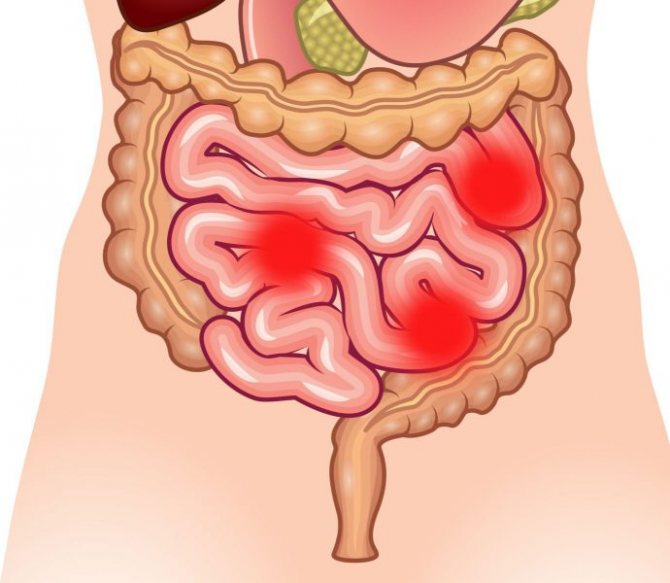
Each disease is accompanied by symptoms unique to it; the diseases also differ in the mechanisms of development, therefore it is necessary to evaluate other symptoms:
- With viral gastroenteritis, in addition to loose, frequent stools, noticeable nausea, vomiting, and spasms in the intestinal area appear. There are spots of blood or pus in the stool.
- With food poisoning, diarrhea is accompanied by abdominal pain, fever, nausea, and vomiting.
- Travelers' diarrhea can additionally manifest itself as severe stomach pain, nausea, and significant vomiting attacks.
- With bacterial enterocolitis, against the background of inflammation of the mucous membrane, pus or blood appears in the stool, the temperature increases, accompanied by fever, abdominal pain.
When infected with parasites, diarrhea most often goes away within a week, and the only additional symptoms present are pus in the stool. Long-term use of pharmaceutical drugs causes diarrhea and pain in the abdominal area.
Two week problem
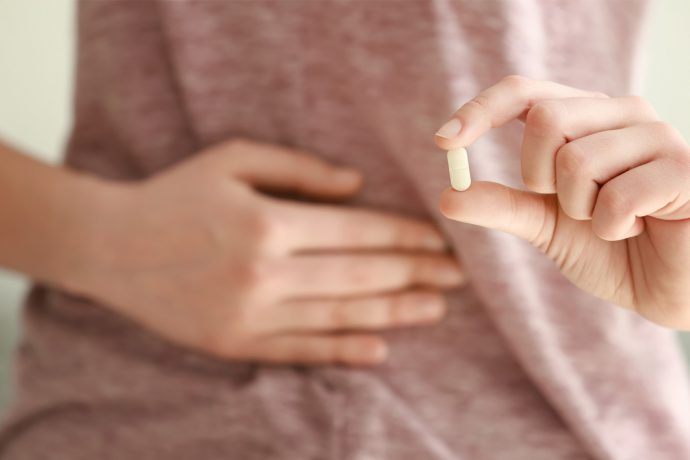
If diarrhea is observed in an adult or child for two weeks, the list of provoking factors includes:
- Long-term use of antimicrobial drugs.
- Infectious intestinal diseases that have not been properly treated.
- Presence of malnutrition.
- Development of malabsorption syndrome.
- The appearance of vitamin deficiency.
- If we are talking about a baby under the age of 12 months, switching him to artificial food can provoke the phenomenon.
- Development of diathesis in a child.
The main danger that diarrhea does not go away for 14 days or more is loss of body weight against the background of deteriorated absorption of important microelements, a decrease in bone tissue density, which leads to increased fragility. If diarrhea does not go away, the risk of vitamin deficiency increases.
Causes of three-week and two-month diarrhea

It happens that diarrhea does not go away for a long time - at least for three weeks.
In this case, they talk about a chronic disorder and include in the list of influencing factors:
- Irritable bowel syndrome, accompanied by abdominal pain, discomfort during bowel movements, fever and vomiting.
- The presence of infectious diseases - this could be giardiasis, chronic gastrointestinal diseases.
- This may be dysbacteriosis, when opportunistic organisms in the intestines turn into pathogens.
- Oncology formed in the colon.
- Long-term use of laxatives.
- Development of endocrine diseases such as hyperthyroidism.
If diarrhea in an adult or child does not go away within two months, one may suspect the presence of a food allergy, intolerance to any product; this may be the body’s reaction to the constant use of synthetic substances - flavorings or food additives and dyes.
Monthly diarrhea what is it
When an adult patient suffers from loose stools for a month and does not go away even after two, such ailment may indicate the presence of various pathologies. Diarrhea itself is a protective reaction of the body, like a cough or runny nose, which cleanses the respiratory system of pathogenic microorganisms.
If diarrhea lasts more than a month, this indicates the body is trying to get rid of microbes that are active in the intestines. There is harmless diarrhea, it occurs after suffering stress, excessive anxiety, and other factors that can increase intestinal activity. There are two forms of diarrhea: acute and chronic.
Each has its own reasons, its own methods of treatment.
It is difficult to say unequivocally why diarrhea does not go away for a month or two. And all because the causes of illness in an adult can be different.
Most often, provoking factors are rotavirus infections, chronic diseases of the intestinal tract, poor diet, allergies and intolerance to any foods.
In this case, an adult may have loose stools for a month or more, what to do in such a situation? A regular diet will not be able to eliminate the problem; treatment must be systematic and comprehensive.
What to do if diarrhea lasts for more than a month?
If you have had diarrhea for two months, you should immediately consult a doctor and together try to find out the cause of this ailment. An accurate diagnosis can only be made after a stool test, general blood test and urine test. Often, an X-ray examination is prescribed to confirm the diagnosis. It helps to exclude the presence of malignant neoplasms.
You can understand what to do when diarrhea lasts for a month or two only after receiving answers to all the tests listed above.
They will explain why the patient has loose stools, what problems provoked its appearance: diseases of the intestines, pancreas or biliary tract.
When prescribing treatment for diarrhea, the general condition of the patient is taken into account; it is important to prevent the occurrence of the most dangerous complication - dehydration.
When diarrhea in an adult lasts more than a month, along with watery feces, a person loses not only water, but also useful minerals, as well as biologically active components. During diarrhea, a patient may lose up to 3% of their total body weight. You can understand whether loose stools could disrupt the water-salt balance within a month by performing one simple test:
- It is necessary to press firmly on the nail plate with the finger of the opposite hand.
- Under pressure, the nail instantly turns pale.
- If the body is not dehydrated, the previous pink color is restored instantly.
What to do if the time period is more than 2 seconds? It's worth starting to worry.
The onset of dehydration with diarrhea can be indicated by a decrease in the amount of urine excreted, its dark color, concentrated consistency, and a strong unpleasant odor.
If loose stools torment a patient for a month, he may experience dry mouth, lack of tears, nervousness, and irritability. Vivid signs of dehydration are dispersion disorders.
Dizziness, disturbances in orientation in space and time.
To prevent fluid loss, you need to take special medications, such as Regidron or Citroglucosan. It is important to constantly feed the patient and monitor his general condition.
It is useful to note additional symptoms that appear along with loose stools, and not to hide their presence in conversations with doctors.
The human body is an intelligent, self-governing and self-healing system that is capable of maintaining optimal internal balance under favorable external conditions.
Numerous bacteria and viruses coexist safely in the body while the immune system closely monitors the balance of forces.
Defense mechanisms are quickly triggered in the event of an imbalance of internal or unauthorized interference of adverse factors from the outside.
Functional diarrhea
Frequent urge to defecate with loose, watery stools are considered symptoms of diarrhea. Just as a cough and runny nose cleanse the respiratory system and indicate problems with the respiratory system, diarrhea is a radical way to get rid of activated microbes or low-quality food products. Diarrhea is the body's natural reaction to problems in the digestive system.
Source: https://kishechnik-zhivot.ru/simptomy/mesyats-diareya-chto-eto
What to do if diarrhea does not go away for a long time
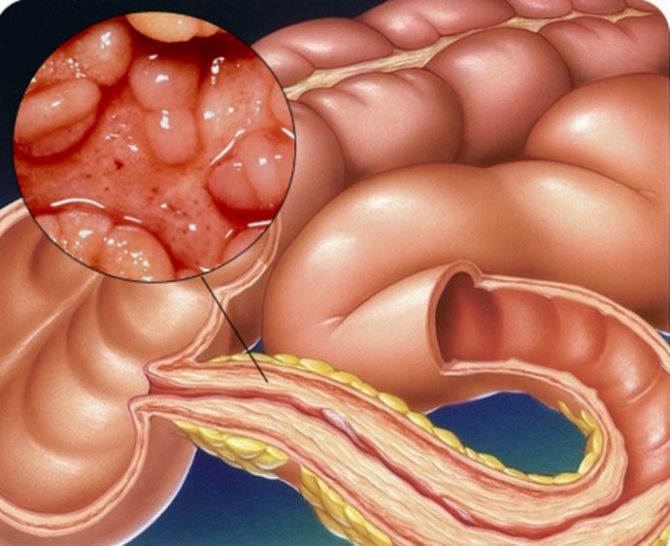
The main danger of prolonged diarrhea is dehydration, loss of vitamins, useful minerals, and salts. These elements must be regularly replenished, for which the best option is to take Regidron and its analogues. If this remedy is not in your home medicine cabinet, you can use saline solution or salted water and brew chamomile tea. But prevention of dehydration should begin at the same moment when repeated diarrhea becomes obvious.
The situation deserves increased attention when bowel movements are abundant, constant, continue for several days and are accompanied by vomiting attacks and bloody inclusions in the stool - such symptoms are possible with the development of dysentery, Crohn's disease and ulcerative colitis. Based on the cause that provoked diarrhea, the specialist selects the required treatment, but at the same time observes a number of rules that must be followed in the presence of stool disorder.
These include:
- Diet assignment.
- Use of adsorbents.
- Purpose of enzymes.
A competent diet when a disorder appears
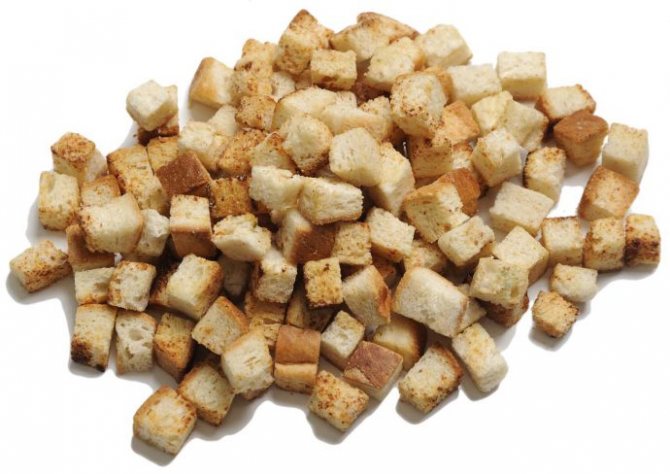
When prescribing a diet, many factors should be taken into account, when selecting products, taking into account their effect on peristalsis. Raw vegetables, plums, spices and other elements can have an irritating effect.
Certain foods can cause a fixing effect, so at the beginning of the diet it is proposed to limit the menu:
- wheat crackers;
- grated boiled vegetables;
- well-cooked porridge;
- pureed lean meat and fish dishes, steamed or boiled;
- Among the drinks, preference is given to teas, blueberry jelly, decoction of bird cherry fruits, and steep rice broth.
The diet can begin with a fasting day, during which you are allowed to drink only strong, sweetened tea, drinking 8 to 10 cups per day. Meals should be fractional - when portions are reduced, their volumes are also reduced, also shortening the intervals between meals. The diet must be followed throughout the course of treatment, however, a strict menu may cease to be so as the condition improves.
What medications to take

There are a number of remedies whose effectiveness has been proven over time.
If diarrhea develops, the following medications are prescribed:
- Sorbents that remove toxins, adsorb gases, reduce flatulence. The list of drugs includes Smecta, Polyphepan, De-Nol, Calcium salts.
- As drugs to reduce the production of intestinal mucus. They are taken throughout the course of the pathology. For Crohn's disease, the hormones Prednisolone and Metypred are used.
- Herbal medicines, which include oak bark, alder cones and bird cherry berries, cinquefoil root and chamomile. Infusions and decoctions are prepared from plants.
- Enzymes are necessary when the disorder is associated with pathologies of the digestive system; Creon, Mezim, Festal and Pancitrate can be prescribed.
- Antispasmodics improve peristalsis, these include No-Shpu, Papaverine.
Antimicrobial drugs are prescribed for intestinal infections; Arbidol is most often used.
Also among the drugs that help stop the effects of pathology on the body are intestinal antiseptics. Probiotics are indicated in all cases of manifest disease. These are Enterol, Hilak-Forte, Linex and others.
Why can diarrhea occur every day?
Every day, loose stools in an adult can occur for a variety of reasons. Among them the following groups can be distinguished.
The foods we eat and our usual diet largely determine the nature and frequency of stool. The following factors contribute to increased frequency of bowel movements and loose stools every day:
- fruits and vegetables with a pronounced laxative effect - beets, plums and prunes, apricots, peaches, figs, fresh dairy products, pickled vegetables;
- products high in coarse plant fiber - legumes (beans, peas, beans), white cabbage, rye bread, bran. They enhance intestinal motility, promoting rapid emptying, resulting in diarrhea developing every day;
- very fatty dishes and products - butter in large quantities, fried, smoked. If there is an excess of them in the diet, the pancreas is overloaded, and it cannot cope with the digestion of incoming food.
Treatment with home remedies
In many cases, you can treat diarrhea at home. Here's what you can do if you have acute, uncomplicated diarrhea:
- To drink a lot of water. Diarrhea can lead to dehydration, so it is important to drink plenty of water. Avoid dairy, alcohol, and caffeine drinks, which can worsen your symptoms.
- Drink fluids with electrolytes. Your body loses electrolytes when you have diarrhea. Try drinking sports drinks, coconut water, or salty broth to replenish your body's electrolyte levels.
- Avoid foods with strong flavors. Spicy, sweet, and highly seasoned foods can make diarrhea worse. It is also recommended to limit your intake of foods high in fiber and fat.
- Follow the BRAT diet. The BRAT diet includes bananas, rice, apples and toast. These soft, starchy foods are gentle on the gut.
- Antidiarrheal drugs. Over-the-counter medications such as loperamide (Imodium, Diamod) and bismuth subsalicylate (Pepto-Bismol) may help manage your symptoms. However, these medications may make bacterial or viral infections worse, so it's best to check with your doctor first .
- Take probiotics. Probiotics are “good” bacteria that help restore microbial balance in the gut. For mild cases of diarrhea, probiotic supplements may help speed recovery.
- Medicine from plants. If diarrhea is accompanied by nausea, try home remedies such as ginger or peppermint.

Treatment of diarrhea
Diarrhea every day, the causes of which have already been established, is treated in accordance with them. In addition, for all types of diarrhea, symptomatic therapy is prescribed to eliminate or reduce the severity of painful manifestations.
Regardless of the cause, diarrhea every day always leads to the loss of fluid and salts in the stool. To prevent and treat dehydration in the initial stages, oral rehydration is used - taking a large amount of liquid (2-3 liters per day) in fractions, that is, in small sips every 2 minutes. Fractional intake is necessary in order to avoid vomiting due to overdistension of the stomach with a large amount of water.
For oral rehydration, boiled water, non-carbonated mineral water, dried fruit compote, weak sweet tea, and special glucose-salt solutions are used.
In severe cases, when the patient’s condition does not allow him to take liquid by mouth (lack of consciousness or repeated intractable vomiting), dehydration is combated with the help of intravenous drip administration of saline and glucose-saline solutions.
Just as some foods can weaken and cause loose stools every day, others can have a strengthening effect on the intestines. These include, first of all, rice and rice water, jelly, mashed potatoes, as well as pasta, some berries, fruits (bird cherry, blueberry, chokeberry) and their decoctions, decoction of the peel and partitions of pomegranate. It is necessary to avoid eating fatty, fried, spicy and smoked foods, which create excessive stress on the gastrointestinal tract and can themselves cause diarrhea.

Taking medications
Medicines are prescribed in strict accordance with the causes of diarrhea:
- for infectious diarrhea, antiviral and antimicrobial drugs are used;
- for diseases of the gastrointestinal tract, enzymes are used;
- for infections and poisoning, sorbents are prescribed;
- for most types of diarrhea, IMODIUM ® Express can be taken as part of complex therapy.
IMODIUM ® Express slows down intestinal motility, which contributes to more frequent bowel movements, suppresses the release of fluid and salts into the intestinal lumen, reducing the volume of feces, loss of salts and water. The drug IMODIUM ® Express should be used in strict accordance with the instructions, taking into account possible contraindications.
Causes of prolonged diarrhea, danger signs and treatment methods
Diarrhea is a very unpleasant symptom that gives a person a lot of discomfort. When this condition is observed for more than two weeks, it may indicate various serious pathologies. Diarrhea that does not go away for a long time is dangerous due to its severe complications. Therefore, it should be treated immediately.
There are also some symptoms that accompany prolonged diarrhea, for which you should definitely visit a specialist.
Causes of prolonged diarrhea
Diarrhea is frequent loose stools that can be caused by a variety of reasons.
Diarrhea accompanies various diseases. Pathological conditions that provoke prolonged diarrhea include diseases of the digestive tract:
- Enteritis
- Dysbacteriosis
- Enterocolitis
- Pancreatitis
- Colitis
- Lactose intolerance
- Pancreatic fibrosis
- Irritable bowel syndrome
- Oncological formations
- Enzyme deficiency
Diarrhea can develop as a result of internal bleeding in the digestive system: with open ulcers of the duodenum or stomach, with damage to the small and large intestines.
In frequent cases, the causes of diarrhea can be various infectious and inflammatory diseases, the causative agents of which are considered to be viruses and pathogenic bacteria. Diarrhea may indicate the presence of dysentery, salmonellosis, cholera, and various parasites in the body. Prolonged diarrhea is caused by Norfolk virus and rotaviruses.
Another factor in the occurrence of loose stools is chemical, food or drug poisoning.
Sometimes this condition appears when a person has experienced a stressful situation, namely after anxiety, fear, or psycho-emotional stress.
Other diseases also affect the development of diarrhea: hyperthyroidism, autoimmune diseases. In addition, poor digestion and abuse of alcohol-containing drinks contribute to the occurrence of diarrhea.
It is also possible to develop this condition after surgery in the gastrointestinal tract. To determine the main cause of prolonged diarrhea, it is important to consult a doctor in time.
He will prescribe the necessary research methods and use their results to determine the disease that causes prolonged diarrhea.
Danger signs and possible consequences
Prolonged diarrhea can lead to dehydration!
Diarrhea is usually accompanied by various unpleasant symptoms: pain and cramping in the abdomen, bloating and rumbling in the intestines. Sometimes the temperature may rise.
There are also more dangerous signs for which it is important to consult a specialist in time:
- Permanent weight loss.
- Stools containing blood and mucus.
- Discharge with pus.
- Pain in the anal area.
- Stool containing undigested food particles.
- Nausea and vomiting.
- Severe abdominal cramps.
- Change in color of stool.
The dangerous consequences of prolonged diarrhea include, first of all, dehydration. In this case, water loss occurs, the water-salt balance is disrupted, useful substances are removed during emptying, and blood circulation worsens.
Dehydration can be indicated by intervals between urinations lasting more than eight hours, as well as dark urine and a small amount of urine.
Signs of dehydration also include dry mouth, depression, irritability, dizziness, lack of tears, loss of coordination, hypotension, sagging and dry skin, increased heart rate, general weakness, loss of performance, and convulsions.
The state of dehydration is dangerous because it can lead to coma and also cause death.
Drug treatment
Diarrhea is a symptom, treatment depends on the cause!
Therapy for prolonged diarrhea should be comprehensive. Therefore, the patient is prescribed not only drugs that help eliminate this symptom, but also those drugs that directly affect the main cause of its occurrence.
If diarrhea is caused by infectious diseases, then the patient needs to take medications that belong to the group of enzymes. Therefore, the use of the following medications is indicated:
- Mezim-forte
- Creon
- Bifidumbacterin
For intestinal irritation and increased motility, it is recommended to take Loperamide or Imodium. For infections, medications in this group are not prescribed.
When the cause of prolonged diarrhea is poisoning, it is important to urgently perform gastric lavage.
To do this, the patient should drink a lot of water to which potassium permanganate has been added (the rinsing liquid in this case should be a light pinkish tint). It is recommended to drink the solution in larger quantities at a time. If the cause of diarrhea lies in the use of antibacterial drugs, then in this case specialists usually prescribe Linex.
Other effective medications often prescribed for diarrhea include:
- Smecta and its analogues (Polysorb MP, Kaopectat, Neointestopan, Enterosgel).
- Enterol (Eubicor, Linex, Baktisubtil, Hilak Forte).
- Among intestinal antiseptic drugs, Nifuroxazide, Intetrix and Rifaximin have proven themselves well.
- Acute pain and spasms can be eliminated with the help of medications such as Papaverine or No-shpa.
- To restore the water-salt balance in the body, take Gastrolit or Regidron. They are diluted with one liter of water. Consume in small portions, but very often, every 5-15 minutes.
Alternative medicine
St. John's wort decoction is an effective remedy for diarrhea.
When using traditional medicines in the treatment of diarrhea, it is important to remember that they are only auxiliary, so it is important to talk with a specialist about the possibility of their use.
Effective and safe remedies used to treat diarrhea in traditional therapy include:
- Mint decoction. Several leaves of the plant are poured with boiling water, boiled a little and infused for sixty minutes. It is recommended to drink after meals three times a day.
- Chamomile decoction. Medicinal raw materials in the amount of a tablespoon are poured with a cup of water and placed on the stove. Boil over low heat for fifteen minutes, leave for half an hour and drink before eating.
- Blueberry tea. It is prepared in the same way as chamomile decoction. You can drink it like regular tea throughout the day.
- St. John's wort infusion. For preparation, the same principles are followed as for the last two remedies listed above.
- You can also use a starch solution for diarrhea. To do this, dilute two tablespoons of the product in a cup of warm water, mix and drink throughout the day.
Diet for loose stools
Rice porridge with water - “first aid” for diarrhea
In addition to medications and alternative remedies, it is important for a patient suffering from prolonged diarrhea to follow a special diet. This will help alleviate the patient’s condition and quickly eliminate unwanted symptoms.
Therefore, it is important to know that during the period of diarrhea the following foods are not allowed:
- Fresh vegetables and fruits
- Spices
- Spices
- Coffee
- Black bread
- Large amounts of salt
- Semi-finished products
- Milk
- Carbonated drinks
- Fatty dishes
- Legumes
- Fried food
- Vegetable or fruit juices
- Flour or confectionery products
- Canned food
- Marinades
- Smoked meats
- Mushrooms
During the period of acute diarrhea, it is recommended to use the following ingredients in food:
- White bread crackers
- Low-fat cottage cheese
- Porridge cooked in water
- Lean fish and meat
- Low-fat soups
- Baked apples
- Vegetable broths
- Boiled eggs or steam omelet
With such a diet, it is important that dishes are steamed, baked or cooked. Fried foods are prohibited in case of prolonged diarrhea.
More information about diarrhea can be found in the video:
Read: Tests for TORCH infections during pregnancy and their interpretation
There are rules of prevention that experts advise to follow to avoid the development of diseases, the symptom of which is prolonged loose stools. Such preventive measures include:
- Be sure to wash your hands before eating food.
- It is important to carefully process fruits, berries and vegetables intended for fresh consumption. They need to be washed well.
- You need to make sure that the ingredients for preparing dishes are not stitched.
- Observe hygiene rules after using the toilet.
- It is important to use a refrigerator to store food.
- Products should be properly cooked, especially meat and fish.
- Undergo a medical examination annually to ensure timely identification of pathologies and their treatment.
- Exotic and unfamiliar food should be treated with caution.
If you adhere to these preventive measures, the risk of developing diseases that are accompanied by prolonged diarrhea is minimized.
Select it and press Ctrl+Enter to let us know.
Source: https://DiagnozLab.com/analysis/infectious/prichiny-dlitelnoj-diarei.html


